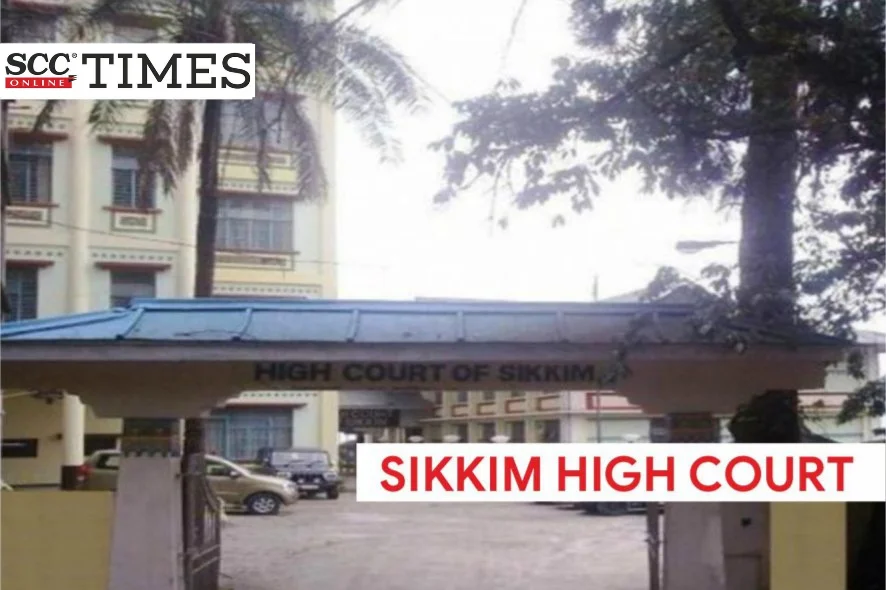Sikkim High Court: In the writ petition (civil) under Article 227 of the Constitution, the present petitioners were the original plaintiffs in a civil suit, aggrieved by an order allowing the defendant/ respondent 1 in the suit to file an application for amendment of evidence. The Single-judge Bench of Bhaskar Raj Pradhan*, J., noted that the impugned application was made under Order VI Rule 17 of the Code of Civil Procedure, 1908 (‘CPC’) and held that the reasons for allowing the application were indisputable and unfaulty. Therefore, the Court rejected the petition.
Background
The matter before the Civil Judge, Gangtok (‘Trial Court’) was that a plaint had been filed by the petitioners (‘plaintiffs’) against respondent 1 (‘defendant’), pursuant to which, the latter had filed a written statement. When the matter had surpassed the stage of filing of the evidence, the defendant sought the amendment of his evidence on affidavit through an application to correct certain typographical errors. At this juncture, the plaintiffs had already closed their evidence. The application for amendment of evidence on affidavit was heard by the Trial Court, however, the defendant had filed two more applications- first, under Order VI Rule 17 of CPC, seeking the amendment of their written statement; second, for the withdrawal of the petition and evidence on affidavit. The Trial Court decided on all three applications of the defendant through the impugned order, however the petitioners were aggrieved by the order only to the extent that it had allowed the amendments sought by the defendant. The petitioners contended that the defendant had failed to show due diligence for not having raised the matter before the commencement of the trial. It was further contended that although the amendment application was pleaded to correct typographical errors, the defendant sought to introduce other facts not pleaded in the written statement filed earlier.
Issues
-
Whether the defendant had exercised due diligence?
-
Whether the defendant sought to introduce new facts to fill the lacunae in their case?
-
Whether the petition was a case fit to exercise the discretionary power under Article 227 of the Constitution?
Analysis and decision
The Court perused Order VI Rule 17 of CPC that provides that either party to a suit may be allowed to alter or amend their pleadings in a just manner; such amendments shall be made as may be necessary for the purpose of determining the real questions in controversy between the parties. The proviso to Order VI Rule 17 is that an amendment shall not be allowed after the commencement of trial, unless the Court concludes that the party could not have raised the matter before the commencement of trial, despite due diligence.
The Court examined the detailed reasoning of the Trial Court for allowing the amendments and found that wherever and whenever a proposed amendment by the defendant was impermissible, the Trial Court had rejected such amendment sought.
The Court noted that the Trial Court had allowed the application for the amendment of written statement filed by the defendant. The Court further took note of how the Trial Court dealt with the other two applications of the defendant which were for correcting certain typographical errors, and for the withdrawal of application along with the evidence on affidavit, respectively. The Trial Court had disallowed the application for the withdrawal of evidence on affidavit, and instead allowed the defendant to file an additional affidavit explaining the mistake in their evidence on affidavit.
The Court explained that the language of Order VI Rule 17 does not circumscribe or limit an application for amendment at any stage of the proceedings, if it is necessary for determining the real questions in controversy. Therefore, the Court found that the allowing of defendant’s application for amendment by the Trial Court even after closing of the plaintiffs’ evidence was permissible since it was “necessary for the purpose of determining the real questions in controversy between the parties.”
The Court noted that the Trial Court’s observations in allowing the impugned application at a belated stage, which were:
-
Prejudice would have been caused to the defendant had the application not been allowed;
-
It would not have altered or substituted a new cause of action or caused prejudice to the plaintiffs.
In fact, the Court noted that the Trial Court had also imposed a cost of Rs. 5,000 upon the defendant to be paid to the petitioners for the inconvenience caused due to the former’s belated application.
The Court further noted that the typographical errors due to which the amendment was sought by the defendant had been made inadvertently at the instance of their counsel and were not a fraudulent act of the defendant. Furthermore, the amendments were imperative for the proper and effective adjudication of the dispute; refusal to allow the amendment application would have caused injustice or resulted in multiple litigations; and the amendments did not constitutionally or fundamentally change the nature of the case.
Hence, the Court viewed that the impugned order was well-reasoned, and despite due diligence, the defendant could not have raised the matter before the commencement of the trial. The Court opined that the Trial Court had been very meticulous in its decision and had not committed an error in the exercise of its jurisdiction that would have caused failure of justice or grave injustice. Therefore, the Court at last rejected the petition and the subsidiary applications.
[Chandu Sherpa v. Raju Rai, 2024 SCC OnLine Sikk 78, decided on 16-08-2024]
*Judgment authored by: Justice Bhaskar Raj Pradhan
Advocates who appeared in this case :
For the petitioners: Dewen Sharma Luitel and Bhaichung Bhutia, Advocates
For the respondents: N. Rai, Senior Advocate; Yozan Rai and Pradeep Tamang, Advocates; S.K. Chettri, Government Advocate








Order6Rule17of C.P.C.Amendment not toallowed judgement SupremeCourt do